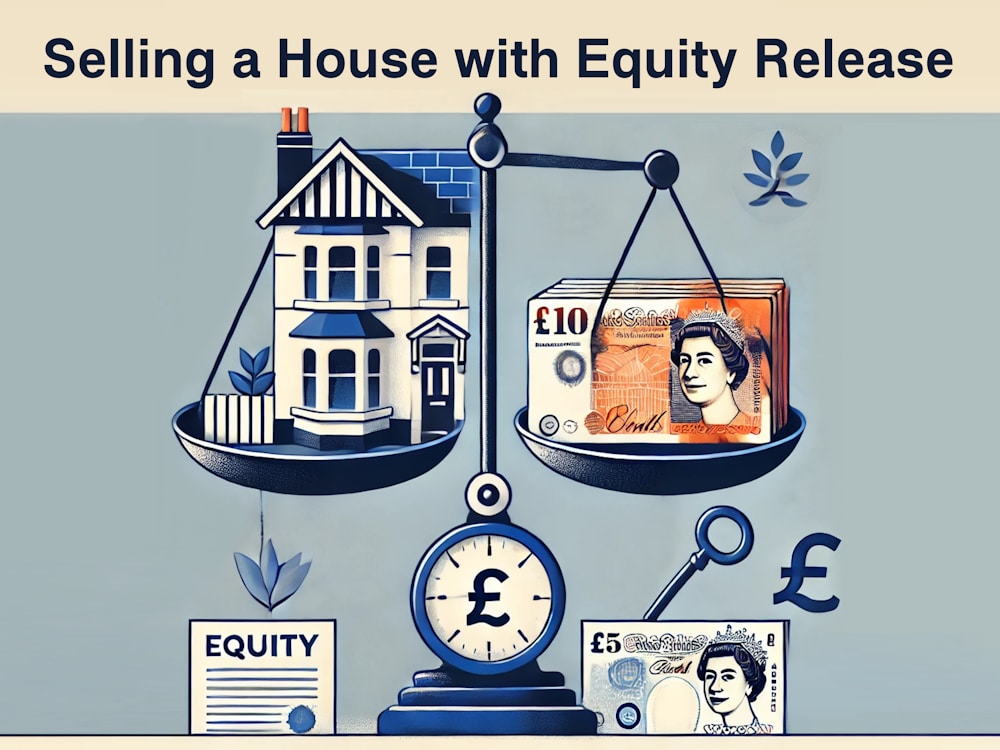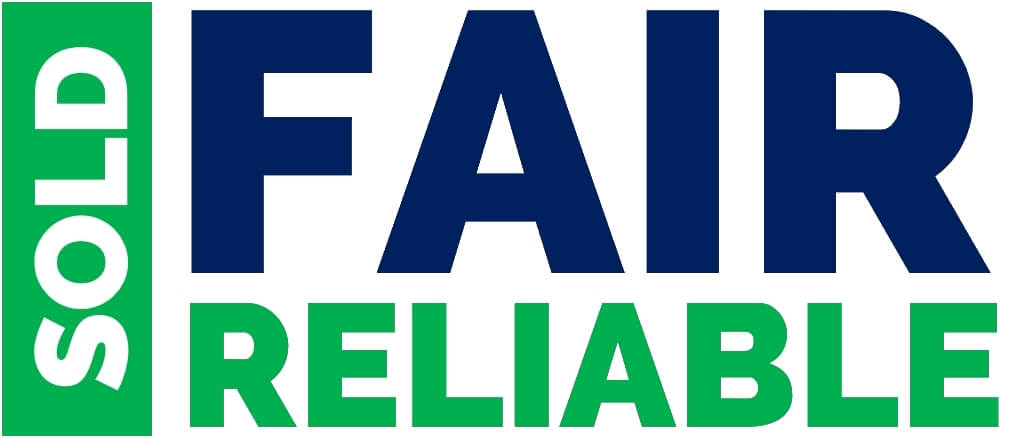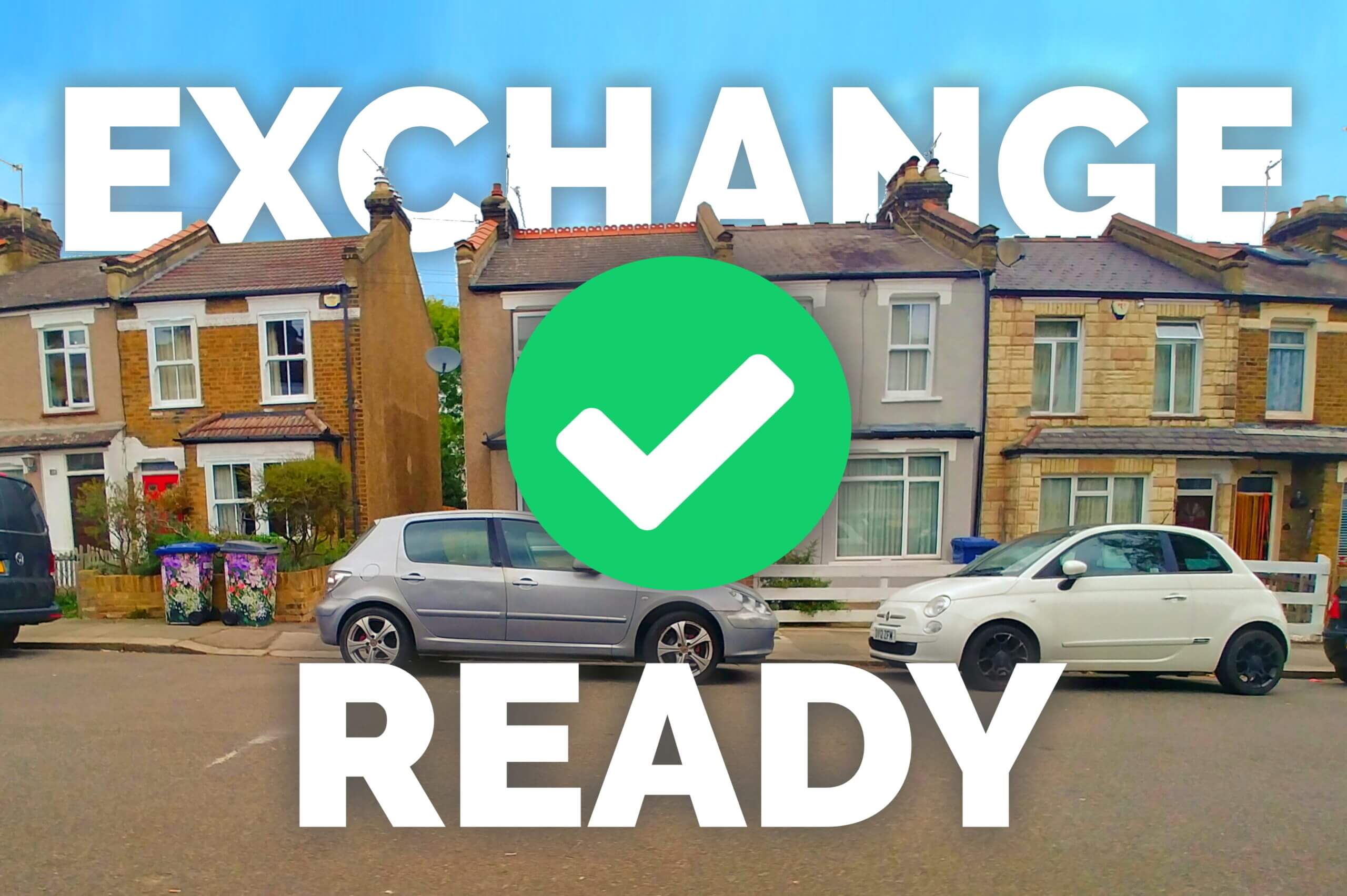Fast Approach to Selling a House with Equity Release
Looking to sell a house or flat that has equity release? This article provides information about selling a property with equity release, including legal considerations, tax implications, and alternative options.
For your peace of mind we are a member of The Property Ombudsman.
Call 0800 862 0206 for your FREE sale price estimate
Home: Auction Link » Selling a House With Equity Release
Selling a house with equity release can be a complex process, but it is entirely possible. Whether you have a Lifetime Mortgage or a Home Reversion Plan, understanding your options and obligations is crucial to ensure a smooth sale. This article will guide you through everything you need to know about selling a property with equity release, including legal considerations, tax implications, and alternative options.
What is Equity Release?
Equity release is a financial product that allows homeowners, typically aged 55 and over, to unlock cash tied up in their property. This is often used to supplement retirement income, fund home improvements, or pay off debts. There are two main types of equity release products:
1. Lifetime Mortgage
A Lifetime Mortgage (LTM) is the most common form of equity release. It allows homeowners to borrow money against the value of their home while retaining ownership. Interest is typically rolled up and repaid, along with the loan, when the property is sold—either when the homeowner moves into long-term care or passes away.
2. Home Reversion Plan
A Home Reversion Plan involves selling part or all of your property to a provider in exchange for a lump sum or regular payments. You can continue living in the property rent-free, but you no longer own it outright. The provider recoups their investment when the property is sold.
Can You Sell a House with an Equity Release Loan?
Yes, you can sell a property that has an equity release loan, but there are conditions. If you have a Lifetime Mortgage, you will need to repay the loan (including accumulated interest) upon sale. If you have a Home Reversion Plan, the reversion company must agree to the sale, and they will take their share of the proceeds.

What are the steps to selling a house with equity release?
Steps to Selling a House with Equity Release
1. Check Your Equity Release Agreement
Review the terms and conditions of your contract to understand repayment obligations and potential penalties.
2. Get a Property Valuation
Obtain a valuation to determine the current market price of your home and how much will be left after repaying the equity release provider.
3. Notify Your Equity Release Provider
Inform your provider that you intend to sell the property. They may have specific requirements regarding the sale.
4. Instruct an Estate Agent, or Auctioneer and Solicitor
Choose an experienced estate agent, or auctioneer and solicitor familiar with equity release sales.
5. Market the Property and Accept an Offer
Once a buyer is found, you can proceed with the sale, ensuring the lender’s debt is settled upon completion.
6. Repay the Equity Release Loan
Upon sale completion, the lender is repaid from the proceeds before you receive any remaining funds.
Can I Sell My House and Pay Off Equity Release?
Yes, you can sell your house and repay the equity release loan in full. Some providers allow “porting” the loan to a new property if you wish to downsize. However, this is subject to the lender’s approval and property suitability.
What Are the Timescales for Selling a House with Equity Release?
The time it takes to sell depends on:
- The property market conditions
- Whether probate is required
- How quickly a buyer is found
On average, selling a house with equity release can take between 3 to 12 months.
Selling via Auction
- Get the lender’s approval
- Set a reserve price that covers the equity release debt
- Ensure the sale contract aligns with the lender’s terms
Free auction estimate
Request a free valuation and reserve price estimate for your property today. In some cases we may need a few more details about your property before providing a free and no-obligation auction sale estimate.
Obtaining Permission
Before proceeding with an auction sale, you must:
- Obtain written permission from your equity release provider
- Ensure they approve of the auction method
- Confirm their specific requirements regarding the reserve price
Setting the Reserve Price
Your reserve price must account for:
- The full equity release debt (including accumulated interest)
- Any early repayment charges
- Auction house fees and commission
- Legal fees and disbursements
Important Your equity release provider may require approval of the reserve price before the auction can proceed.
Auction House Requirements
You will need to:
- Provide comprehensive details of your equity release plan
- Share the up-to-date redemption figure from your provider
- Ensure the auction house understands the minimum acceptable price
- Have your solicitor work in partnership with the auction house
Timeline Considerations
- Completion typically occurs within 28 days of the auction
- This expedited timeline may affect early repayment charges
- Coordination between all parties is essential for timely completion
Legal Preparation
Your solicitor should:
- Prepare a comprehensive legal pack including equity release details
- Liaise with the equity release provider regarding completion timing
- Ensure all documentation is prepared for swift completion
Inheriting a House with Equity Release
If you inherit a property with an equity release loan, you will need to repay the outstanding debt. This may require selling the house or using other funds to settle the balance. If the debt exceeds the property’s value, reputable providers offer a negative equity guarantee, meaning heirs will never owe more than the house is worth.
Before proceeding with any sale, ensure you have obtained Grant of Probate and have the legal authority to sell the property.
If the homeowner has passed away, the property cannot be sold until Grant of Probate is issued. The executor of the estate must apply for this legal document, which can take several months. The equity release provider will expect repayment after the sale, but interest will continue to accrue until then.
Understanding the Existing Equity Release Plan
Contact the equity release provider immediately to:
- Notify them of the property owner’s death
- Request current redemption figures
- Understand any death-related clauses in the contract
- Typically, most equity release plans must be repaid within 12 months of the owner’s death
- Interest will continue to accrue during this period
Pre-Auction Requirements
Obtain and organise the following documents:
- Grant of Probate
- Death certificate
- Equity release documentation
- Property deeds and title information
- Appoint a solicitor experienced in both probate and equity release
- Get written permission from the equity release provider for auction sale
Short on time?
If you don’t have the time to read this article in full, we can come back to you with a free auction appraisal, to help you decide if selling by auction is a good option for you. Request a free estimate and we’ll come back to you.
Financial Considerations
Calculate the minimum required sale price to cover:
- Outstanding equity release loan
- Accrued interest since the death
- Any early repayment charges
- Auction house fees (typically 2-2.5%)
- Legal fees and disbursements
- Any inheritance tax implications
Auction Process Specifics
Choose an auction house with experience in probate sales
- Ensure the auction legal pack includes:
- Grant of Probate
- Special conditions
- Set a reserve price that covers all outstanding amounts
- Consider the 28-day completion timeline typical for auctions
Legal pack preparation is particularly important; a comprehensive auction legal pack provides transparency, helping to give potential buyers confidence when they bid. Including the Grant of Probate in the auction legal pack is usually advised.
Legal Requirements
Your solicitor must:
- Coordinate with the equity release provider
- Handle the discharge of the equity release plan
- Manage the distribution of proceeds to beneficiaries
- Ensure compliance with probate requirements
Time-Critical Considerations
- Most equity release providers require repayment within 12 months of death
- Interest continues to accumulate until full repayment
- The auction process typically takes 6-8 weeks from instruction to completion
- Factor in time needed to obtain Grant of Probate (typically 3-6 months)

Timescale for Selling by Auction
Preparing for Auction – 4 to 8 Weeks
- Auction Valuation & Reserve Price: The property is valued, and a reserve price is set with the auction house.
- Legal Pack Preparation: Solicitors prepare the auction legal pack, including title deeds, equity release details, and probate confirmation (if required). This takes around 2–4 weeks.
- Marketing & Viewings: The auction house markets the property for 2–4 weeks before the auction.
Auction Day & Sale Process
- Property is auctioned: If the reserve price is met, the sale is legally binding immediately.
- Buyer pays a deposit (usually 10%): This is due on auction day.
- Exchange of contracts: Happens on the same day.
Completion & Repayment – 28 Days
- The buyer must complete the purchase within 28 days (or sometimes 56 days, depending on the auction house’s terms).
- On completion, the lender is repaid in full from the sale proceeds.
- If there’s surplus money after clearing the equity release loan, the remaining balance goes to the estate or heirs.
| Step | Time Estimate |
|---|---|
| Probate (if needed) | 3–12 months |
| Notifying Lender & Negotiating Terms | 1–4 weeks |
| Preparing for Auction | 4–8 weeks |
| Auction Date | 1 day |
| Completion & Payment | 28–56 days |
Fast-Track Options
- Sell at the next available auction (most auctions happen monthly).
- Some auction houses offer “accelerated sales”, reducing preparation time to 2–3 weeks.
- If probate isn’t needed (or has already been granted) the entire process could be completed in 2–3 months.
Can You Lose Your House with Equity Release?
If you fail to meet any conditions (e.g., maintaining the property), the lender may take action. However, negative equity guarantees from reputable lenders ensure that homeowners won’t owe more than the home’s value.
- The equity release provider can take possession proceedings
- They can force a sale of the property to recover their debt
- Any remaining equity (if any) would then go to the estate
It’s important to note that:
- Interest continues to accumulate during this 12-month period
- The debt grows larger the longer it takes to resolve
- The provider must follow proper legal processes before taking possession
- They should give reasonable time and warning before taking action
- Contact the equity release provider immediately after the death
- Get an up-to-date redemption figure
- Understand all repayment deadlines
- Consider selling the property quickly (like through auction) if funds aren’t available to repay the loan
Charities like StepChange, Citizens Advice and Age UK offer guidance on managing debt and protecting assets. We have provided links to some useful websites in the FAQ’s section towards the bottom of this page.
Tax Implications When Selling a House with Equity Release
There are typically no Capital Gains Tax (CGT) implications if the property is your main residence. However, if the property is an investment or second home, CGT may apply. Consult a tax adviser for guidance.

Legal Considerations When Selling a House with Equity Release
- Review your contract for early repayment charges
- Ensure all lender obligations are met before the sale
- Seek legal advice from a solicitor specialising in equity release sales
Alternative Options to Selling
- Remortgaging to a traditional mortgage
- Partial repayment (if allowed by the lender)
- Porting the equity release loan to a new property
Do Equity Release Companies Offer Flexibility When Selling?
Some providers offer downsizing protection, allowing you to repay without penalties if you move to a smaller home. Always check your policy terms.
What is the Typical Interest Rate for Equity Release?
Interest rates for equity release typically range from 6% to 8%, but rates vary based on the provider and plan.
What Penalties Do Equity Release Companies Charge?
Are There Any Exceptions if the Owner is Living in a Care Home?
However, there are exceptions:
- If the plan is jointly held (e.g. a couple), the loan does not have to be repaid until the last surviving borrower moves into care or passes away.
- Some lenders allow extensions to delay selling the property, giving family members time to arrange repayment or refinancing.
If the homeowner sold a portion of the home under a home reversion plan, they no longer own that share. When they move into care, the reversion company can sell the property to recover its share. If there’s still a portion of the home owned by the estate, the remaining equity may go to the heirs.
What If the Borrower Plans to Return Home?
If the move to care is temporary, some lenders allow the loan to remain active. A doctor’s letter or care home assessment may be needed to confirm whether or not the stay is permanent.
What If Selling Would Cause Financial Hardship?
Some lenders may allow extended grace periods (e.g., a year) before requiring the sale, or repayment from other estate assets instead of selling the home. Special circumstances (e.g., financial hardship) to be reviewed case-by-case.
What Are the Names of Some of the Big Equity Release Companies in the UK?
- Aviva
- Legal & General
- LV= (Liverpool Victoria)
- Just Retirement
- More2Life
- Pure Retirement
- Canada Life
What About Negative Equity?
The Equity Release Council mandates that reputable providers offer a “No Negative Equity Guarantee”, ensuring homeowners or their heirs never owe more than the home’s value.
What Happens If You Can’t Sell in Time?
If the property doesn’t sell in time, interest continues accruing. The equity release company may take legal action or repossess the home as a last resort. Some lenders charge late payment fees if the repayment deadline isn’t met.
FAQs About Selling a House with Equity Release
1. Can I sell my house with equity release?
Yes, but the equity release loan must be repaid upon sale.
2. Will I have to pay early repayment charges?
Possibly, depending on your lender’s terms.
3. Can I port my equity release to another property?
Some providers allow it, but the new property must meet their criteria.
4. How long does it take to sell a house with equity release?
Typically 3 to 12 months, depending on market conditions.
5. What if I inherited a house with equity release?
The loan must be repaid before the estate can be settled.
6. What happens if the sale doesn’t cover the equity release debt?
A reputable lender’s negative equity guarantee ensures no debt beyond the property’s value.
7. Do I need to tell the lender before selling?
Yes, always inform your equity release provider.
8. Are there tax implications when selling?
Not if it’s your main residence, but CGT may apply to second homes.
9. Can I sell the house at auction?
Yes, but ensure the reserve price covers the loan.
10. Where can I get help?
- Citizens Advice Bureau (www.citizensadvice.org.uk)
- The Equity Release Council (www.equityreleasecouncil.com)
- Age UK (www.ageuk.org.uk)
If you’re considering selling a house with equity release, seek professional financial and legal advice to ensure you make the best decision.
Contact us for guidance on selling your home by auction. Request a free pre-auction appraisal – we’ll be happy to help.
Guide to selling a house by auction
Explains the stages involved in an auction sale. With information about auction sale costs, timescales and the process for selling at auction.
Carry out improvements before selling?
When selling a property in need of improvement, should I spend money on refurbishment works? Or leave the property as is, and let the new owner take care of improvements?
Poor condition property: Auction VS Estate Agent
The private treaty method of sale isn’t suited to some types of property – it’s inefficient and potentially open to abuse.
Selling a short lease flat
The rules of an auction sale mean that buyers must compete to purchase a property. And the highest bidders offer is legally binding – there is no opportunity for them to reduce their offer.











